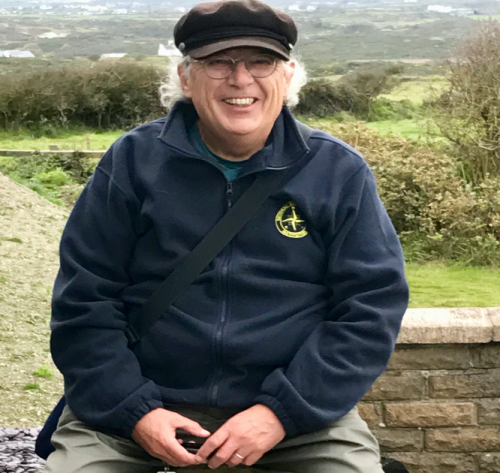Training in the time of Covid19
As current safe practice precludes more than one person being in the station at the same time, our training officer, Wes Johnson, has devised ingenious ways of continuing the training of new volunteers while maintaining a safe distance. As Wes explained, he felt it was very important not to waste the enthusiasm of new recruits during the pandemic and risk losing volunteers in the coming year.
When the weather allows, Wes situates himself on the station balcony with the trainee on duty in the operational area of the station and communicates either through the ‘stable door’ or by walkie- talkie radio. At other time Wes sets up a separate office in the small utility room in the station with the same charts and NCI training manual that the trainee is using.
To put the trainees through their paces, Wes uses actual incidents he has been involved in as practice ‘may days’ and ‘pan pans’ as well as more mundane requests for radio checks and weather forecasts. This enables trainees to practice their VHF radio skills as well as plotting chart positions and bearings and communicating with the coastguard.
The trainee is effectively doing a solo watch with the training officer on hand to guide them through any incidents they might have to respond to as well as, if the need arises, take over in an emergency. At the same time both Wes and the trainee are working together to hone the trainee’s skills in responding to the varied and complex situations that can arise requiring a calm and efficient response whilst on duty at the NCI station.
Wes is also willing to offer individual CPD to qualified volunteers whilst the pandemic precludes us from having group training events.
Below is trainee, Alec Mitchell’s, account of his training with Rhoscolyn NCI:
Tell me and I may forget; Teach me and I may remember; Involve me and I learn.
US Founding Father Benjamin Franklin may not have had the NCI specifically in mind, but his insightful aphorism still rings true at the Rhoscolyn station. As a former trainer myself, albeit in a different context (the diocese of Manchester), with a completely different clientele (parish clergy), and about a completely different subject (anti-racism), I approached the prospect of being a new trainee with a rum cocktail of mixed feelings. I was keen as mustard though effectively green as grass; curious and committed, with a critical professional interest in the work. But I’ll admit to a streak of cynicism – or at least the reticence of an old dog, ‘collared’ in order to be taught new but necessary tricks.
All my negativity and fears dissolved, and every positive and hopeful expectation was confirmed as the weeks flew by and my training took wing. The experience of being ‘on the receiving end’ has been thoroughly fulfilling, and the coverage of the subject itself both comprehensive and a delight. The delivery of the training has felt both well-paced and well-presented. From my own knowledge and experience of delivering ‘awareness training’ over nearly twenty years – and having made many mistakes in the process, but also learnt valuable lessons about what to do and what not to do – I know that it always helps to tell your trainees what you are going to do, then to do it, and finally remind them what you have done! But nothing is achieved if you do not engage your audience, and in that sense get them to ‘do’ it too. As Franklin almost said, involve the objects of your subject, and thus get the trainees to train themselves! That is the secret of fully effective and truly inspirational training; and that is what I have been fortunate to receive at Rhoscolyn NCI.
My training has been grounded and practical. Theory is one thing (and is important) – but ‘case studies’ and simulated exercises are quite another. I have been trained at my own pace, I feel; step-by-step, and stage-by-stage. A good trainer checks at the end of the ‘session’ to find out if the trainee is ‘happy’ and if there are any questions. Though this ‘happiness’ is as much to do with confidence as it is to do with satisfaction of course – but whatever the inner feelings of the trainee, it is no good to continue if he or she is still hesitant, stumbling and tentative. ‘Debriefing’ after a period on a supervised watch gives the trainer a measure that what has been attempted has been achieved; the knowledge and developing skill that has been imparted and honed has been intelligible and internalized; it is both useful and is being applied. The trainee has grown, if only a little, in ability and expertise.
From my perspective as a trainee, I am not only entirely happy with the training I have received from the NCI Officer assigned to me, but also delighted to be able to say that the whole experience has been one of the highlights of my continuing education in the university of retirement to date! So thank you, NCI, and thank you, too, to my trainer!

Alec Mitchell
October 2020


